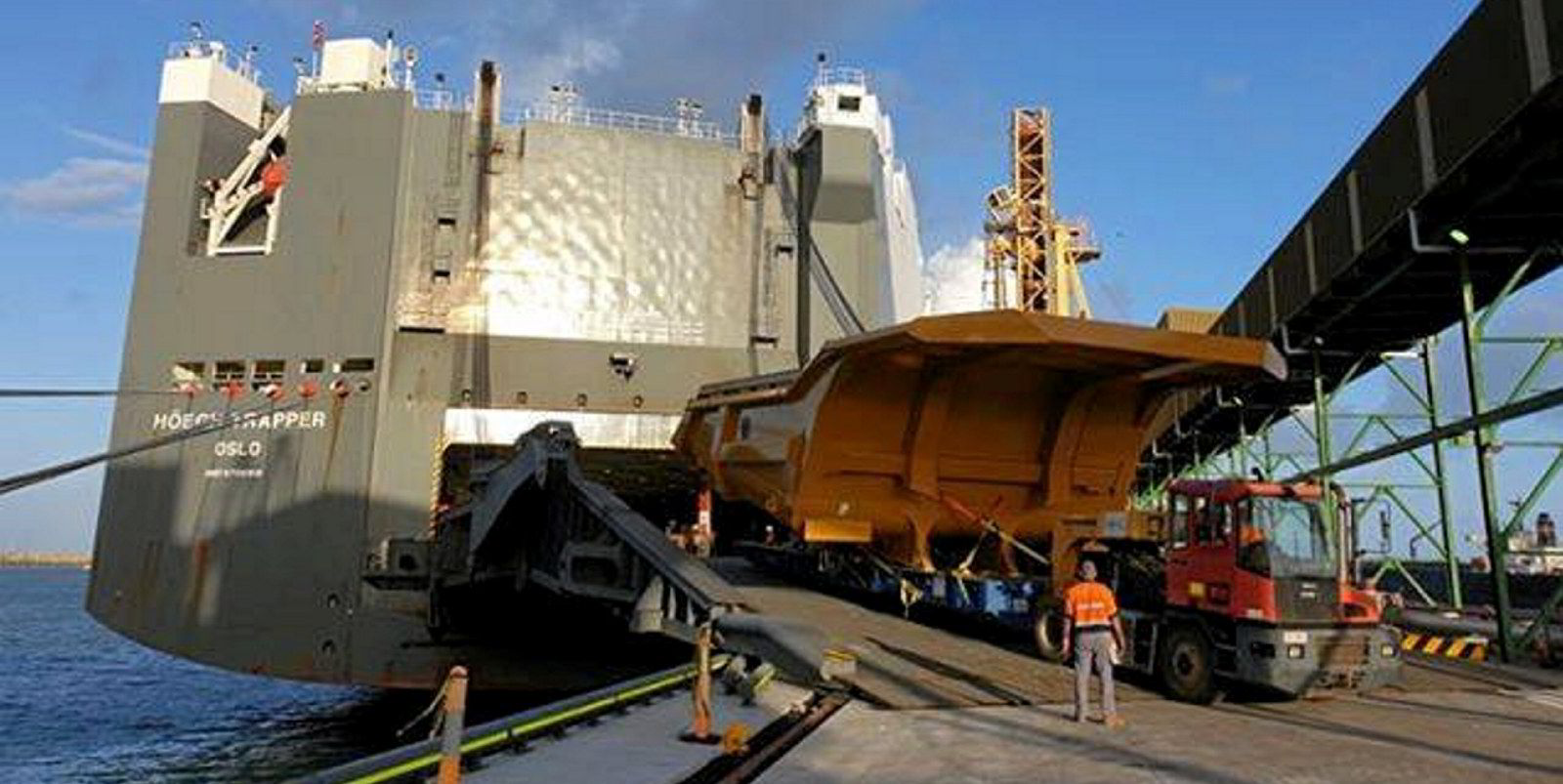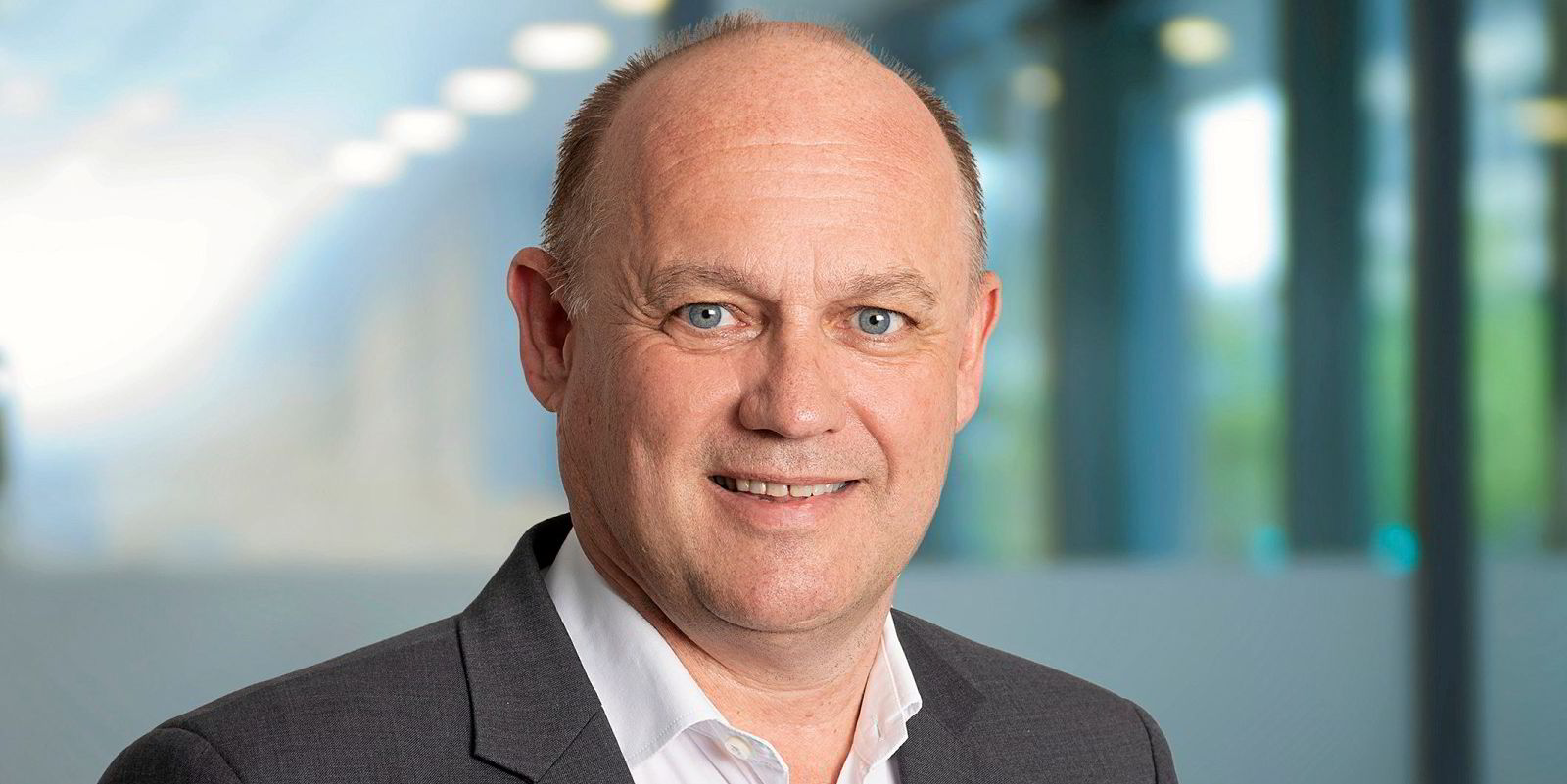Oslo-based, US-owned Ocean Yield is reporting a profitable quarter, with a strong balance sheet for new acquisitions and an agnostic appetite for tonnage.
The company is in a phase of increased turnover as clients exercise purchase options, and chief executive officer Andreas Rode sees that as a healthy thing.
Rode told investors in a 25 August conference call that the recent exercises of call options by clients in strong market segments are a normal part of the business cycle of a financial owner.
“As the fleet matures… we are approaching a point in the stage or cycle of the portfolio where we will approach certain refinancing options our clients have,” said Rode in today’s call, giving the example of a recent transaction with client Hoegh Autoliners.
TradeWinds reported this week on the sale of the 8,500-ceu Hoegh Tracer (built 2016) for $53.2m pursuant to a call option in the bareboat charter. The ship is valued at some $91.35m by VesselsValue, and Hoegh Autoliners also holds a similar option on Xiamen-built sistership Hoegh Trapper, maturing in December.
The focus is on finding the right way to recycle the cash.
Rode told investors: “The main task will be to employ capital being returned to us on accretive terms. Also, it is a good opportunity to gradually reduce the age of the fleet.”
The company is in a strong position to acquire ships, with a cash position of $150m, an equity ratio of $29.9%, and the backing of private equity giant Kohlberg Kravis Roberts (KKR), a company with some $20bn of assets under management.
Although Rode said the company is agnostic as to sector with no predetermined mix of segments, and evaluates deals individually, not least with the quality of the client in mind, he also said Ocean Yield sees commodity shipping as presenting the best risk to return, and identified tankers, bulkers, and gas carriers in that order as interesting targets.
“We are actively but selectively looking at various accretive investment opportunities. Our focus remains on modern tonnage with fuel-efficient and future-proof engine technology. We remain conservative in our investment approach and we typically find the best risk/reward in commodity shipping segments,” he said.
Since the end of June, the company has picked up two 36,000-cbm ethylene gas carriers under construction at Jiangsu Yangzi-Mitsui for a 15-year charter to Braskem, and two 5,500-teu containerships under construction at South Korea’s HJ Shipbuilding & Construction for seven-year charter to Zim.
KKR took formerly Oslo-listed Ocean Yield private in a deal that closed in February, but the company still has reporting obligations in Oslo thanks to public bond financings.
Ocean Yield made a net profit of $24.6m after tax on total revenue and other income of $43.8m in the second quarter.
On a year-on-year basis, that is down from $26.2m on $47.3m in the second quarter of 2021 under the old ownership structure.
The company highlights quarter-on-quarter comparisons in presenting its financial results, however, and on that basis net profit was up from $22.1m since the first quarter of this year and down from total revenue and other income of $47.1m.




